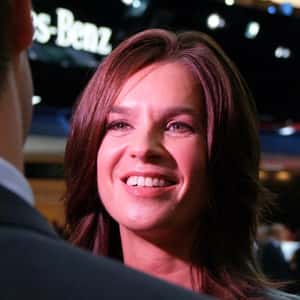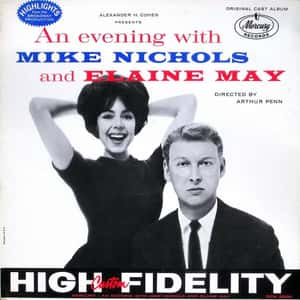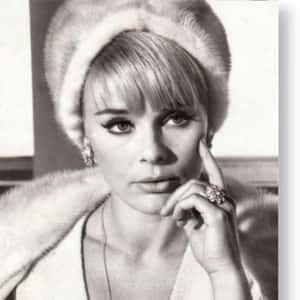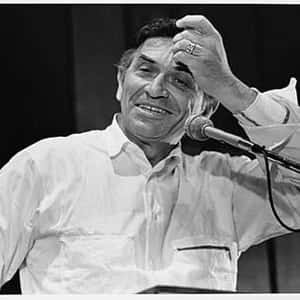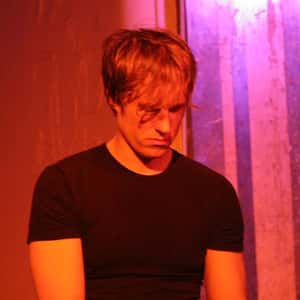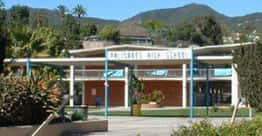Famous People From Berlin
- Age: 58Katarina Witt (German pronunciation: [ˈkataʁiːna vɪt]; born 3 December 1965) is a retired German figure skater. Witt won two Olympic gold medals for East Germany, first at the 1984 Sarajevo Olympics and the second at the 1988 Calgary Olympics. She is a four-time World Champion (1984, 1985, 1987, 1988) and two-time World silver medalist (1982, 1986). A feat only equalled by Sonja Henie among female skaters, Witt won six consecutive European Championships (1983–1988). Between 1984 and 1988, Witt won ten golds from eleven major international events; two Olympics, four out of five World championships and six European championships. Her competitive record makes her one of the most successful figure skaters of all time. Since retirement from skating, Witt has worked in film and television.
- Age: 92Mike Nichols (born Mikhail Igor Peschkowsky; November 6, 1931 – November 19, 2014) was an American film and theater director, producer, actor, and comedian. He was noted for his ability to work across a range of genres and for his aptitude for getting the best out of actors regardless of their experience. Nichols began his career in the 1950s with the comedy improvisational troupe The Compass Players, predecessor of The Second City, in Chicago. He then teamed up with his improv partner, Elaine May, to form the comedy duo Nichols and May. Their live improv act was a hit on Broadway, and the first of their three albums won a Grammy Award. After Nichols and May disbanded in 1961, he began directing plays, and quickly became known for his innovative productions and ability to elicit polished performances. His Broadway directing debut was Neil Simon's Barefoot in the Park in 1963, with Robert Redford and Elizabeth Ashley. He next directed Luv in 1964, and in 1965 directed another Neil Simon play, The Odd Couple. He received a Tony Award for each of those plays. In 2012, he won his sixth Tony Award for Best Direction of a Play with a revival of Death of a Salesman. Nichols directed and/or produced more than twenty-five Broadway plays. In 1966, Warner Brothers invited Nichols to direct his first film, Who's Afraid of Virginia Woolf?, starring Elizabeth Taylor and Richard Burton. The groundbreaking film inspired some critics to declare Nichols the "new Orson Welles". It won five Academy Awards (out of 13 nominations), and was the top-grossing film of 1966. Nichols's next film, The Graduate (1967) starred then unknown actor Dustin Hoffman, alongside Anne Bancroft and Katharine Ross. It was another critical and financial success, became the highest-grossing film of the year, and received seven Academy Award nominations, winning Nichols the Academy Award for Best Director. Among the other films Nichols directed were Catch-22 (1970), Carnal Knowledge (1971), Silkwood (1983), Working Girl (1988), Wolf (1994), The Birdcage (1996), Closer (2004) and Charlie Wilson's War (2007). Along with an Academy Award, Nichols won a Grammy Award (the first for a comedian born outside the United States), four Emmy Awards, nine Tony Awards, and three BAFTA Awards. His other honors included the Lincoln Center Gala Tribute in 1999, the National Medal of Arts in 2001, the Kennedy Center Honors in 2003 and the AFI Life Achievement Award in 2010. His films received a total of 42 Academy Award nominations, and seven wins. He is one of the few people who have won Academy, Emmy, Grammy and Tony Awards.More Mike Nichols
- #29 of 61 onWho Are The Best Jewish Film Directors Of All Time?
- #89 of 324 onThe Greatest Directors In Movie History
- #34 of 87 onThe Best Comedy Directors in Film History
- Age: 83Elke Sommer (born 5 November 1940), born Elke Baronesse von Schletz, is a German actress, entertainer and artist who starred in many Hollywood films.More Elke Sommer
- #99 of 1,285 onThe Most Beautiful Women Of All Time
- #247 of 1,134 onThe Most Beautiful Women In The World
- #4 of 24 onThe Most Beautiful Pin-Up Girls of the '60s
- Age: 39Karoline Herfurth (born 22 May 1984) is a German actress.
- Age: 78Linda Melson Harrison (born July 26, 1945) is an American television and film actress, and director and producer, who is internationally known for her role as Nova, Charlton Heston's mute mate in the science fiction film Planet of the Apes (1968) and the first sequel, Beneath the Planet of the Apes; she also had a cameo in Tim Burton's 2001 remake of the original. She was a regular cast member of the 1969-70 NBC television series Bracken's World. She was the second wife of film producer Richard D. Zanuck (Jaws, Cocoon, Driving Miss Daisy, Charlie and the Chocolate Factory); her youngest son is producer Dean Zanuck (Road to Perdition, Charlie and the Chocolate Factory).More Linda Harrison
- #259 of 1,285 onThe Most Beautiful Women Of All Time
- #38 of 70 onWho Is The Most Famous Harrison In The World?
- #12 of 59 on50+ Celebrities Born on July 26
- Dec. at 88 (1907-1995)Sir Rudolf Ernst Peierls, (; German: [ˈpaɪɐls]; 5 June 1907 – 19 September 1995) was a Jewish German-born British physicist who played a major role in the Manhattan Project and Tube Alloys, Britain's nuclear programme. His obituary in Physics Today described him as "a major player in the drama of the eruption of nuclear physics into world affairs".Peierls studied physics at the University of Berlin, at the University of Munich under Arnold Sommerfeld, the University of Leipzig under Werner Heisenberg, and ETH Zurich under Wolfgang Pauli. After receiving his DPhil from Leipzig in 1929, he became an assistant to Pauli in Zurich. In 1932, he was awarded a Rockefeller Fellowship, which he used to study in Rome under Enrico Fermi, and then at the Cavendish Laboratory at the University of Cambridge under Ralph H. Fowler. Due to Adolf Hitler's rise to power in Germany, he elected to not return home in 1933, but to remain in Britain, where he worked with Hans Bethe at the University of Manchester, then at the Mond Laboratory at Cambridge. In 1937, Mark Oliphant, the newly-appointed Australian professor of physics at the University of Birmingham recruited him for a new chair there in applied mathematics. In March 1940, Peierls co-authored the Frisch–Peierls memorandum with Otto Robert Frisch. This short paper was the first to set out that one could construct an atomic bomb from a small amount of fissile uranium-235. Until then it had been assumed that such a bomb would require many tons of uranium, and consequently was impractical to build and use. The paper was pivotal in igniting the interest of first the British and later the American authorities in nuclear weapons. He was also responsible for the recruitment of his compatriot Klaus Fuchs to work on Tube Alloys, as the British nuclear weapons project was called, which resulted in Peierls falling under suspicion when Fuchs was exposed as a spy for the Soviet Union in 1950. After the war, Peierls returned to the University of Birmingham, where he worked until 1963, and then was the Wykeham Professor of Physics at the University of Oxford until he retired in 1974. At Birmingham he worked on nuclear forces, scattering, quantum field theories, collective motion in nuclei, transport theory and statistical mechanics, and was a consultant to the Atomic Energy Research Establishment at Harwell. He received many awards, including a knighthood in 1968, and wrote several books including Quantum Theory of Solids, The Laws of Nature (1955), Surprises in Theoretical Physics (1979), More Surprises in Theoretical Physics (1991) and an autobiography, Bird of Passage (1985). Concerned with the nuclear weapons he had helped to unleash, he worked on the Bulletin of the Atomic Scientists, was President of the Atomic Scientists' Association in the UK, and was involved in the Pugwash movement.
- Dec. at 60 (1931-1991)Bill Graham (born Wulf Wolodia Grajonca; January 8, 1931 – October 25, 1991) was a German-American impresario and rock concert promoter from the 1960s until his death in 1991 in a helicopter crash. On July 4, 1939 he was sent from Germany to France to escape the Nazis. At age 10 he settled in a foster home in the Bronx, New York. Graham graduated from DeWitt Clinton High School and from City College with a business degree. In the early 1960s, he moved to San Francisco, and, in 1965, began to manage the San Francisco Mime Troupe. He had teamed up with local Haight Ashbury promoter Chet Helms and Family Dog, and their network of contacts, to organize a benefit concert, then promoted several free concerts. This eventually turned into a profitable full-time career and he assembled a talented staff. Graham had a profound influence around the world, sponsoring the musical renaissance of the '60s from the epicenter, San Francisco. Chet Helms and then Bill Graham made famous the Fillmore and Winterland Arena; these turned out to be a proving grounds for rock bands and acts of the San Francisco Bay area including the Grateful Dead, Jefferson Airplane, and Big Brother and the Holding Company with Janis Joplin, who were first managed, and in some cases developed, by Chet Helms.
- Age: 47Dominic Bernard Patrick Luke Monaghan (; born 8 December 1976) is an English actor who was born in Germany. Monaghan first gained fame for being Hetty Wainthropp's sidekick Geoffrey in Hetty Wainthropp Investigates (1996–98). He first gained exposure in film through his role as Sasha in the television film Hostile Waters (1997) based on the true story of a Russian and an American submarine colliding in the Cold War. He achieved worldwide fame as he played Meriadoc "Merry" Brandybuck in Peter Jackson's epic film trilogy The Lord of the Rings (2001–03) based on the novel of the same name by J.R.R Tolkien. He extended his recognition with his role of Charlie Pace on the successful television show Lost (2004–2010). Also, Monaghan played the young mutant Chris Bradley formerly known as Maverick in the superhero film X-Men Origins: Wolverine (2009). He currently hosts the nature programme Wild Things with Dominic Monaghan (2012–present). Monaghan will appear in Star Wars: The Rise of Skywalker (2019), his character has not been revealed yet. He will be reuniting with J.J. Abrams, the co-creator of Lost.More Dominic Monaghan
- Dig Deeper...195+ Famous Sagittarius Celebrities
- #56 of 95 onThe Best Short Actors
- #19 of 19 onThings You Didn't Know About The 'Lord Of The Rings' Cast
- Dec. at 55 (1892-1947)Ernst Lubitsch (; January 29, 1892 – November 30, 1947) was a German American film director, producer, writer, and actor. His urbane comedies of manners gave him the reputation of being Hollywood's most elegant and sophisticated director; as his prestige grew, his films were promoted as having "the Lubitsch touch". Among his best known works are Trouble in Paradise, Design for Living, Ninotchka, The Shop Around the Corner, To Be or Not to Be and Heaven Can Wait. In 1946, he received an Honorary Academy Award for his distinguished contributions to the art of the motion picture.More Ernst Lubitsch
- #30 of 61 onWho Are The Best Jewish Film Directors Of All Time?
- #116 of 324 onThe Greatest Directors In Movie History
- #41 of 87 onThe Best Comedy Directors in Film History
- Dec. at 89 (1769-1859)Friedrich Wilhelm Heinrich Alexander von Humboldt (, also US: , UK: , German: [ʔalɛkˈsandɐ fɔn ˈhʊmbɔlt] (listen); 14 September 1769 – 6 May 1859) was a Prussian polymath, geographer, naturalist, explorer, and influential proponent of Romantic philosophy and science. He was the younger brother of the Prussian minister, philosopher, and linguist Wilhelm von Humboldt (1767–1835). Humboldt's quantitative work on botanical geography laid the foundation for the field of biogeography. Humboldt's advocacy of long-term systematic geophysical measurement laid the foundation for modern geomagnetic and meteorological monitoring.Between 1799 and 1804, Humboldt travelled extensively in the Americas, exploring and describing them for the first time from a modern scientific point of view. His description of the journey was written up and published in an enormous set of volumes over 21 years. Humboldt was one of the first people to propose that the lands bordering the Atlantic Ocean were once joined (South America and Africa in particular). Humboldt resurrected the use of the word cosmos from the ancient Greek and assigned it to his multivolume treatise, Kosmos, in which he sought to unify diverse branches of scientific knowledge and culture. This important work also motivated a holistic perception of the universe as one interacting entity. He was the first person to describe the phenomenon and cause of human-induced climate change, in 1800 and again in 1831, based on observations generated during his travels.
- Age: 93Colin J. Campbell, PhD Oxford (born 1931) is a retired British petroleum geologist who predicted that oil production would peak by 2007. He claims the consequences of this are uncertain but drastic, due to the world's dependency on fossil fuels for the vast majority of its energy. His theories have received wide attention but are disputed and have not significantly changed governmental energy policies at this time. To deal with declining global oil production, he has proposed the Rimini protocol. Influential papers by Campbell include The Coming Oil Crisis, written with Jean Laherrère in 1998 and credited with convincing the International Energy Agency of the coming peak; and The End of Cheap Oil, published the same year in Scientific American. He was referred to as a "doomsayer" in The Wall Street Journal in 2004.. The Association for the Study of Peak Oil and Gas, founded by Campbell in 2000, has been gaining recognition in the recent years. The association has organised yearly international conferences since 2002. The most recent conference of the USA chapter (ASPO-USA) was at the University of Texas in Austin, TX on 30 November and 1 December 2012.
- Dec. at 70 (1874-1945)Adolf Brand (14 November 1874 – 2 February 1945) was a German writer, egoist anarchist, and pioneering campaigner for the acceptance of male bisexuality and homosexuality.
- Age: 71Christopher Franke (born 6 April 1953, Berlin) is a German musician and composer. From 1971 to 1987 he was a member of the electronic group Tangerine Dream. Initially a drummer with The Agitation, later renamed Agitation Free, his primary focus eventually shifted to keyboards and synthesizers as the group moved away from its psychedelic rock origins. While he was not the first musician to use an analog sequencer, he was probably the first to turn it into a live performance instrument, thus laying the rhythmic foundation for classic Tangerine Dream pieces and indeed for the whole Berlin school sound. After his departure from the group, he founded the Sonic Images record label, a new-age music label called Earthtone and the Berlin Symphonic Film Orchestra, and produced a number of solo music works. After leaving Tangerine Dream, his only live concert was on 9 October 1991 at the Astoria Theatre in London. He performed on stage with Edgar Rothermich (a.k.a. Richard E. Roth) who is also his producer and engineer on all his solo projects and film music after 1990. Franke moved to Los Angeles in 1991 to pursue film work. In 1995 he scored the AFI short Requiem. He may be best known for composing the music for the science fiction television series Babylon 5, as well as the score of the anime movie Tenchi Muyo! in Love and in 2005 the music for German musical Ludwig² (with Konstantin Wecker).
- Dec. at 48 (1892-1940)Walter Bendix Schönflies Benjamin (; German: [ˈvaltɐ ˈbɛnjamiːn]; 15 July 1892 – 26 September 1940) was a German Jewish philosopher, cultural critic and essayist. An eclectic thinker, combining elements of German idealism, Romanticism, Western Marxism, and Jewish mysticism, Benjamin made enduring and influential contributions to aesthetic theory, literary criticism, and historical materialism. He was associated with the Frankfurt School, and also maintained formative friendships with thinkers such as playwright Bertolt Brecht and Kabbalah scholar Gershom Scholem. He was also related by law to German political theorist and philosopher Hannah Arendt through her first marriage to Benjamin's cousin, Günther Anders. Among Benjamin's best known works are the essays "The Task of the Translator" (1923), "The Work of Art in the Age of Mechanical Reproduction" (1936), and "Theses on the Philosophy of History" (1940). His major work as a literary critic included essays on Baudelaire, Goethe, Kafka, Kraus, Leskov, Proust, Walser, and translation theory. He also made major translations into German of the Tableaux Parisiens section of Baudelaire's Les Fleurs du mal and parts of Proust's À la recherche du temps perdu. In 1940, at the age of 48, Benjamin committed suicide at Portbou on the French–Spanish border while attempting to escape from the invading Wehrmacht. Though popular acclaim eluded him during his life, the decades following his death won his work posthumous renown.
- Age: 94Andreas Siegfried "Andrew" Sachs (7 April 1930 – 23 November 2016) was a German-born British actor. He made his name on British television and rose to fame in the 1970s for his portrayals of the comical Spanish waiter Manuel in Fawlty Towers. He went on to have a long career in acting and voice-over work for television, film and radio. In his later years, he continued to have success with roles in films such as Quartet, and as Ramsay Clegg in Coronation Street.
- Age: 55Gesine Cukrowski is an actress.
- Age: 52Alec Empire (born Alexander Wilke-Steinhof on 2 May 1972 in Charlottenburg, West Berlin) is a German experimental electronic musician who is best known as a founding member of the band Atari Teenage Riot, as well as a prolific and distinguished solo artist, producer and DJ. He has released many albums, EPs and singles, some under aliases, and remixed over seventy tracks for various artists including Björk. He was also the driving force behind the creation of the digital hardcore genre, and founded the record labels Digital Hardcore Recordings and Eat Your Heart Out Records.More Alec Empire
- #22 of 29 onThe Best Industrial Hip-Hop Groups/Artists
- #42 of 76 onThe Best Breakbeat Groups/DJs
- #17 of 94 onThe Best Breakcore Artists/Bands
- Age: 48Alexandra Monika Neldel (born 11 February 1976) is a German actress from Berlin.
- Dec. at 56 (1879-1936)Friedrich Gustav Maximilian Schreck (6 September 1879 – 20 February 1936), known professionally as Max Schreck, was a German actor, best known for his lead role as the vampire Count Orlok in the film Nosferatu (1922).More Max Schreck
- #551 of 574 onThe Best Actors In Film History
- #12 of 17 onWhat These Notable Horror Villains Look Like Without Their Makeup
- #11 of 50 onThe Greatest Artists With Only One Masterpiece
- Age: 46Alexandra Finder is an actor.
- Dec. at 62 (1885-1947)Lilly Reich (16 June 1885 – 14 December 1947) was a German modernist designer. She was a close collaborator with Ludwig Mies Van der Rohe for more than ten years in the late 1920s and '30s.
- Dec. at 71 (1930-2002)Igor Kipnis (27 September 1930 – 23 January 2002) was a well-known American harpsichordist, pianist and conductor.
- Dec. at 88 (1919-2007)Wolfgang Kurt Hermann "Pief" Panofsky (April 24, 1919 – September 24, 2007), was a German-American physicist who won many awards including the National Medal of Science.
- Age: 38Dion Dowell is an American professional basketball player. A few days before he was released by the Golden State Warriors on October 9, 2008, Dowell played in his first and only National Basketball Association pre-season game for the Warriors. A 6'7" forward, Dowell played college basketball at University of Texas. He then transferred to University of Houston and played there for two seasons. As a Houston Cougar from 2006 to 2008, Dowell played in 61 games and averaged 11.0 points and 6.4 rebounds per game Prior to college, Dowell helped lead his Texas City High School basketball team to the playoffs during his junior and senior seasons. As an active and athletic player with a quick second jump and creativity around the basket, Dowell's playing style has been compared to that of another 6'7" forward, Shawn Marion.
- Age: 96Martin Böttcher (17 June 1927 – 20 April 2019) was a German composer, arranger and conductor.
Ottokar Runze
Age: 98Ottokar Runze (19 August 1925 – 22 September 2018) was a German film producer, director and screenwriter. His 1974 film In the Name of the People was entered into the 24th Berlin International Film Festival, where it won the Silver Bear. The following year, he was a member of the jury at the 25th Berlin International Film Festival.- Age: 44Jeanette Biedermann (born February 22, 1980) is a German singer, songwriter, actress, and television personality. Born and raised in the greater Berlin area, Biedermann began performing as a member of a troupe of acrobats in a children's circus at the age of six. She later attended beauty school before dropping out to pursue her music career following her participation and win of the Bild-Schlagerwettbewerb competition in 1998. The following year, Biedermann placed fourth in the national final for the Eurovision Song Contest, and was propelled to stardom when she was cast in a main role in the soap opera Gute Zeiten, schlechte Zeiten. In 2000, Biedermann made her musical breakthrough with her first two full English-language albums Enjoy! (2000) and Delicious (2001). Trying to reinvent her image, Biedermann shifted to pop rock music for her next albums, Rock My Life (2002), Break On Through (2003) and Naked Truth (2006). Following her departure from GZSZ and a longer hiatus, she had a starring role in the telenovela Anna und die Liebe and released her dance pop-led album Undress to the Beat (2009), which was less successful commercially and led to a decline in her musical career. In 2012, Biedermann became the lead singer of the German language group Ewig which eventually disbanded in 2019. The same year, she appeared in the sixth season of Sing meinen Song - Das Tauschkonzert, the German version of the Best Singers series, and announced the release of her eighth solo effort DNA (2019). Lending her musical knowledge to others, Biedermann served as a member of the judging panel of reality television competition series such as Star Search and Stars auf Ice in 2003 and 2006, respectively. Since, she has also starred in various films, theatrical projects, and television shows, including crime series Tatort (2006) and spoofing film Dörte's Dancing (2008). With album and single sales in excess of ten million copies, Biedermann is ranked among the highest-selling German music artists to emerge in the early 2000s. Her contributions to the music industry have garnered her numerous achievements including two ECHO Awards, a Goldene Kamera and a Top of the Pops Award.
Ayya Khema
Dec. at 74 (1923-1997)Ayya Khema (August 25, 1923 – November 2, 1997) was a Buddhist teacher and was very active in providing opportunities for women to practice Buddhism, founding several centers around the world. In 1987, she helped coordinate the first-ever Sakyadhita International Association of Buddhist Women. Over two dozen books of her transcribed Dhamma talks in English and German have been published. In the last year of her life, she also published her autobiography: I Give You My Life.- Dec. at 86 (1922-2009)Lukas Foss (August 15, 1922 – February 1, 2009) was a German-American composer, pianist, and conductor.More Lukas Foss
- Dig Deeper...Famous People Who Died in New York City
- And Deeper...Famous People Who Died in New York
- #20 of 20 onThe Greatest 20th Century Classical Composers


